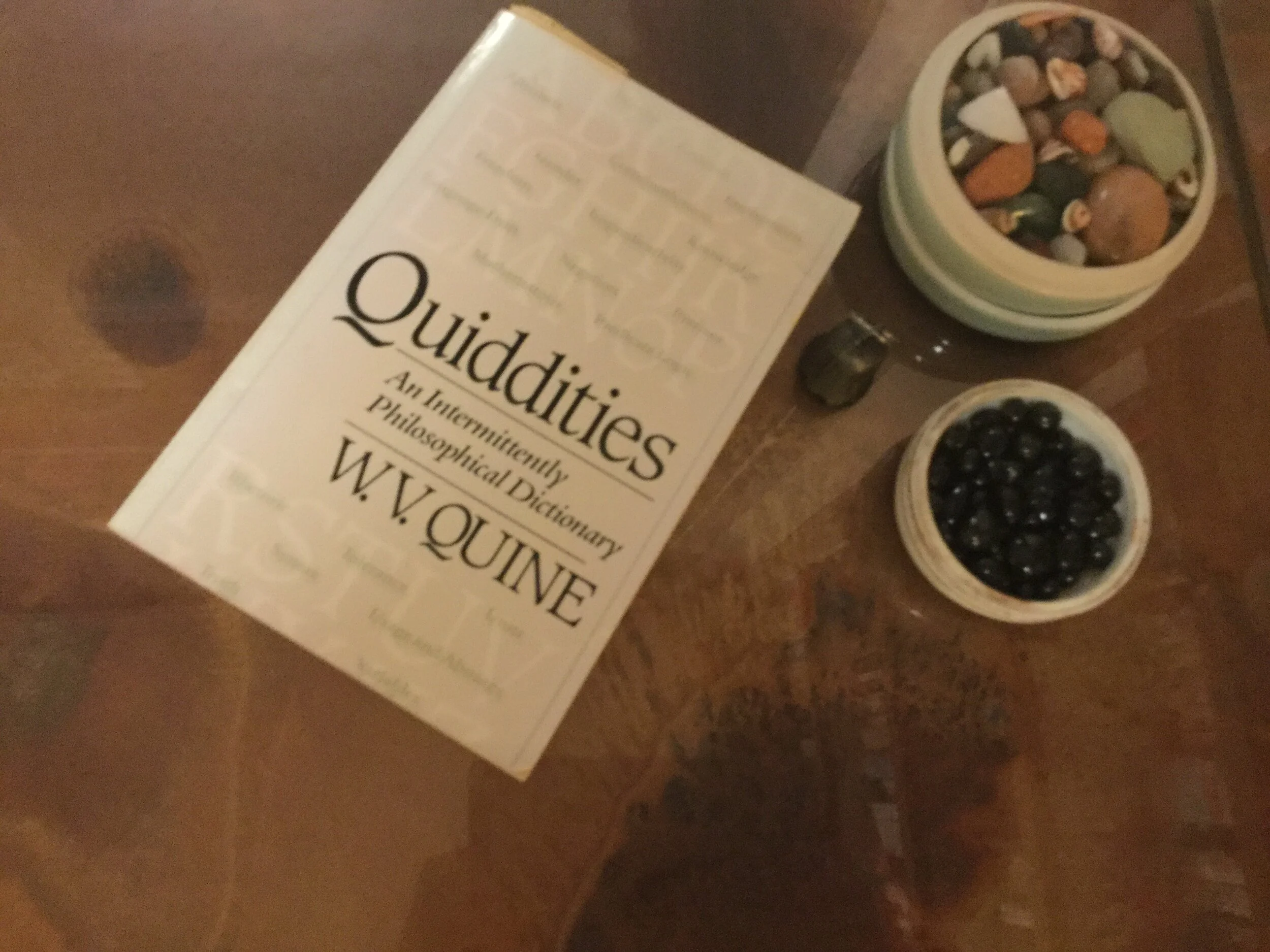Believe/Think
Two verbs: Believe and Think. Believe me, I Think these words deserve attention.
W.V. Quine, Edgar Pierce Professor of Philosophy, Emeritus, Harvard University, by his title alone, has me thinking I should believe him when he states in the book, “Quiddities,” that “Believing is a disposition,” while “Thinking is an activity.”
You may think that last sentence of mine was too long. You may even believe so. With the words “that” and “so,” these two verbs are interchangeable. But, “that” and “so” are the only way our great guide, Grammar, allows these verbs to dance together. In all other cases, one is attitude, the other, an activity.
I can think hard about how to train puppy Goldendoodle; I can’t believe hard.
“I believe the pup is getting better about not jumping up on people,” I may say.
“Think about it,” my husband responds.
“I believe him,” said our president about Russian’s leader denying interference in America’s elections.
“Think about it,” urged Intelligence communities.
The problem I’m presently thinking about is this: we who hold strong beliefs (about okra, climate, divinities, or Goldendoodles) are inclined to believe that our beliefs should be universally supported; or at least are superior to competing opinions. We don’t need to think about it; we are inclined not to. The verb is a good one. Believing brings satisfaction. Believing is essential to trust. Believing can be based on evidence, can have been established by thinking, beliefs can be wrong, but woe to those of us who believe beliefs should not be challenged or changed.
Think about it.




